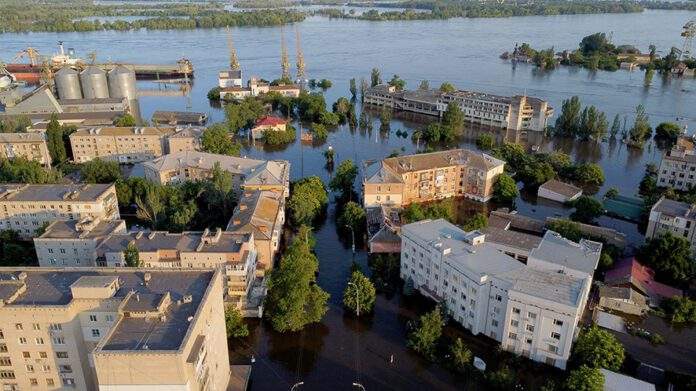Cabinet has chosen a three-pronged approach to clarify South Africa’s non-aligned stance on the Russia-Ukraine war, pressing President Cyril Ramaphosa to centralise communication channels.
The steps to get the government to speak with one voice come as cabinet on Wednesday gave Ramaphosa the green light to send ministerial envoys to meet Group of Seven (G7) countries to explain South Africa’s non-aligned stance on the war.
The G7 includes Canada, France, Germany, Italy, Japan, the UK and the US.
South Africa was already a member of the African Peace Mission Initiative formulated by Zambia, Senegal, the Democratic Republic of the Congo, Uganda and Egypt.
Here at home, Ramaphosa tasked Deputy President Paul Mashatile with leading an inter-ministerial committee to examine options regarding the International Criminal Court’s (ICC) arrest warrant for Putin.
Information from the peace mission, G7 and the inter-ministerial committee will now be communicated by Ramaphosa.
“The context here is that we are trying to avoid mixed messages in the communications that relate to South Africa’s position with regards to the Russian-Ukrainian conflict. So, only one person will deal with Russia issues from now on, and that is the president,” said a source close to the process.
According to other insiders, the Mashatile intervention was moving slower than expected. At least one meeting has been held since Ramaphosa formed the inter-ministerial committee in April, sources said. This was especially true since it was the first task Ramaphosa assigned to Mashatile.
“On the G7, the only outstanding issue is whether we send the envoys to each country, or we invite them for a visit,” said a government insider.
The introduction of revised communication protocols and diplomatic intensification are part of preparations for the upcoming Brics summit in Johannesburg, scheduled for August 22 to 24. Uncertainty over South Africa’s willingness to implement the ICC arrest warrant against Putin has attracted global interest.
The newly established G7 envoys will include International Relations & Cooperation Minister Naledi Pandor, Trade, Industry & Competition Minister Ebrahim Patel, Finance Minister Enoch Godongwana, and Minister in the Presidency Khumbudzo Ntshavheni.
It is expected that the decision to place all communication on South Africa’s policy towards Russia under Ramaphosa’s supervision would cascade down to Luthuli House. “But do not forget that Luthuli House is the strategic centre of power, so decisions cannot be imposed,” said a source.
The governing ANC reportedly considered the idea of the government ceding the summit hosting rights to a neighbouring country or even China. However, last week, at least two ministers, Ntshavheni and Pandor, remained adamant that the government was not discussing any cession of hosting rights.
ANC spokesperson Mahlengi Bhengu-Motsiri said yesterday the government had its own processes, and such a cabinet decision to centralise communication would have been with due regard to the importance of the issue on their part.
Ramaphosa continued to be the party’s chief messenger, followed by secretary-general Fikile Mbalula, according to Bhengu-Motsiri, who added that nothing had changed on the part of the governing party.
She said there was no mixed messaging between the government and the ANC.
“The ANC has been very outspoken about looking forward to our government hosting the Brics nations. We are also looking forward to having president Putin on our shores.”
To read more political news and views, click here.
Follow @SundayWorldZA on Twitter and @sundayworldza on Instagram, or like our Facebook Page, Sunday World, by clicking here for the latest breaking news in South Africa.



